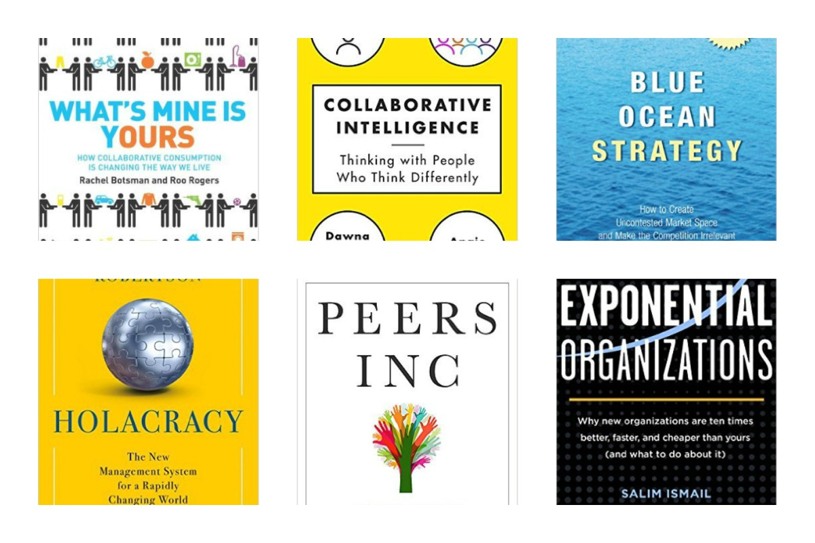
Every two years, Thinkers50, an organization that ranks and honors Global management thinkers and promotes management thinking across industries, produces a list of 8 thinkers and honor them with Distinguished Achievement Awards.
This year's list shows a common thread among all honorees, the world of business is in perpetual flux and we have entered into the ultimate sharing economy that is defining every business rule of old age differently.
Below is a list of 6 books by 8 shortlisted Candidates for this year's Distinguished Achievement Awards to help you better understand how collaborative economy works.
[su_divider top="no" text=" " divider_color="#e8e7e6" link_color="#edde29" size="1" margin="10"][/su_divider]
1. What’s Mine is Yours: How Collaborative Consumption is Changing the Way We Live by Rachel Botsman and Roo Rogers
Insight on how technological advances are driving collaborative consumption which will change forever the ways in which we interact both with businesses and with each other.
I believe we're actually in a period where we're waking up from this humongous hangover of emptiness and waste, and we're taking a leap to create a more sustainable system built to serve our innate needs for community and individual identity. I believe it will be referred to as a revolution, so to speak -- when society, faced with great challenges, made a seismic shift from individual getting and spending towards a rediscovery of collective good.
[su_divider top="no" text=" " divider_color="#e8e7e6" link_color="#edde29" size="1" margin="10"][/su_divider]
2. Peers Inc. by Robin Chase
Insight from the founder of ZipCar on sharing economy and about a time when traditional way of thinking about business is changing rapidly.
We are in the middle of an economic transition, from the old industrial economy to the new collaborative economy.
[su_divider top="no" text=" " divider_color="#e8e7e6" link_color="#edde29" size="1" margin="10"][/su_divider]
3. Exponential Organizations by Salim Ismail, Michael Malone and Yuri van Geest Ismail
Accelerate your growth by using technology.Lessons from organizations that have outgrown in past years.
In business, performance is key. In performance, how you organize can be the key to growth. In the past five years, the business world has seen the birth of a new breed of company—the Exponential Organization—that has revolutionized how a company can accelerate its growth by using technology.
[su_divider top="no" text=" " divider_color="#e8e7e6" link_color="#edde29" size="1" margin="10"][/su_divider]
4. Blue Ocean Strategy by W Chan Kim & Renée Mauborgne
Create market for your products and build a brand that last for years. Red Ocean companies compete for a small share of existing market demand whereas a blue Ocean Strategy company approaches market in a way that creates new opportunities.
A company should never outsource its eyes. There is simply no substitute for seeing for yourself. Great artists don’t paint from other people’s descriptions or even from photographs; they like to see the subject for themselves. The same is true for great strategists.
[su_divider top="no" text=" " divider_color="#e8e7e6" link_color="#edde29" size="1" margin="10"][/su_divider]
5. Collaborative Intelligence by Dawna Markova and Angie McArthur
Collaborative intelligence, or CQ, is a measure of our ability to think with others on behalf of what matters to us all. The way we think, interact, and innovate is shifting rapidly and CQ is increasingly becoming an important ability to survive and thrive in this new world.
The most significant gift our species brings to the world is our capacity to think. The most significant danger our species brings to the world is our inability to think with those who think differently.
[su_divider top="no" text=" " divider_color="#e8e7e6" link_color="#edde29" size="1" margin="10"][/su_divider]
6. Holacracy by Brian Robertson
A very interesting take on managing your organization. The book provides an antidote to hierarchy.
There is no freedom without discipline, no vision without a form

